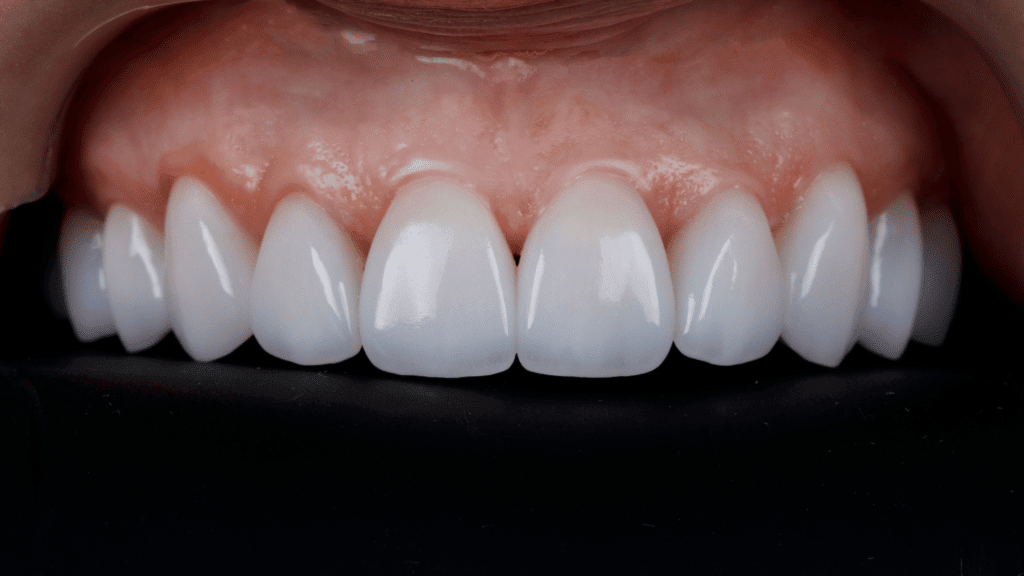Did you know that an estimated 4.5% of the general population suffers from dental trauma every year? Cracks and chips are examples of injuries that can cause physical harm to the teeth. Accidents like falls are among the most common causes of such dental issues.
However, cracked, chipped, or broken teeth can also contribute to dental cavities. At the same time, tooth decay increases the likelihood of your teeth being harmed.
Dental veneers can aid in the correction of such issues. In addition, they can aid in the restoration of broken teeth as well as the reinforcement of weakening teeth.
But what precisely are veneers? What is their mechanism, and what other dental conditions can they help with?
Please keep reading because we’ll discuss all of these questions (and more) in the post below.
What are Dental Veneers & How Do They Work?
Veneers are thin shells covering the front surfaces of your teeth. To make them, technicians employ high-quality dental materials such as tooth-colored composite or porcelain.
Dental veneers are just aesthetic. They can hide various cosmetic flaws, like chips, cracks, gaps, tooth discoloration, and more. The front surfaces of your teeth are covered by veneers to improve your smile. They function by concealing visual imperfections.
Because relatively little tooth structure is destroyed during veneer preparation, the largest amount of tooth structure is preserved. Dental veneers can improve your teeth’s appearance, and gum tissues respond well to them. Some more benefits of dental veneers are that the color can be chosen specifically as per your choice, and porcelain veneers are stain-resistant.
Dental veneers are well-known for their endurance, and they can last for many years. However, it also relies on your lifestyle and your adherence to the aftercare process. Dental veneers, like natural teeth, require regular care and upkeep. This boosts their longevity and maintains the result. You should always practice good dental hygiene daily. You can even get some important aftercare advice from your dentist if you desire.
Why Do People Get Veneers?
People often get veneers because (1) their dentist advises them due to a dental condition or (2) they want to improve their smile. They might be either utilitarian or cosmetic – or both! The following are a few of the most prevalent reasons why people choose to obtain veneers:
Unhappy with Your Smile
A smile’s brilliance might fade with age owing to discoloration, tooth loss, cavities, excessive grinding, and decay. Cosmetic dentistry veneers have become one of the most popular cosmetic dental treatments used in smile makeovers.
You Have Cracked, Chipped or Broken Teeth
A weaker tooth might get cracked or chipped. That suggests the patient do something to strengthen the tooth. By opting for veneers, a candidate can solve the challenge on two levels. The veneers are strong enough to alleviate chewing force on the teeth. This indicates that the crack or chip is unlikely to deteriorate.
The veneer also hides any chips or cracks. No one will notice the tooth has been broken when veneers are used appropriately. In some cases, the dentist may advise combining the veneer with a crown for the best results.
Stained or Discolored Teeth
Teeth whitening is usually the first treatment recommended for people who have stained teeth; however, if you haven’t had much success with teeth whitening procedures, veneers may be a good option.
A root canal causes discolored teeth, extended use of certain medications (tetracycline), and an overabundance of fluoride. If you dislike the color of your teeth, veneers might be used to whiten them.
Gaps Between Your Teeth
Is there a small space between some of your teeth? Bonding is one option, but veneers are also a great option. As veneers can add some mass to the teeth, they can be used for filling in those gaps. This method ensures that the teeth appear to be properly proportioned and natural. People will notice the smile of the patient to be more beautiful without knowing why since the veneers can be colored to match the color of the teeth.
Worn-Down Teeth
Previously, dentists either extracted or capped extremely worn teeth. Veneers for worn teeth can now be created by dentists. Dental crowns or more comprehensive porcelain veneers are indicated when your teeth have been worn down and need to be rebuilt. These provide better structural support and protection for your teeth. This reduces the possibility of your veneers crumbling or cracking.
Misaligned, Uneven or Irregularly Shaped Teeth
If your teeth are slightly misaligned, veneers may be utilized to correct the problem right away. They can also be used to widen your teeth if you believe they are too little. Veneers can help you attain the desired tooth size and symmetry, allowing you to smile confidently.
Should You Consider Getting Veneers?
Getting veneers is the most effective technique to address flaws in your teeth. They are nearly identical to teeth and have a long lifespan. You can have them personalized to your liking in terms of color, shape, and size. Dental porcelain veneers are stain resistant and well-tolerated by the gums.
After your tooth has been made ready for the veneer, the procedure can’t be reversed. If a veneer cracks, it’s difficult to restore without replacing the entire veneer. It is critical to avoid habits like as pen-chewing and nail-biting, which can cause the veneer to crack. Veneers are not recommended for persons who have poor gum health. Furthermore, persons who grind or clench their teeth risk chipping or damaging their veneers. Finally, veneers are still prone to deterioration; therefore, you must maintain good oral hygiene and see your dentist regularly.
Veneers are a terrific solution for many people who want to boost their confidence and feel better about their smile.
Final Thoughts
Dental veneers are a type of cosmetic dental appliance that improves the appearance of a person’s teeth. Dental veneers improve tooth color, offer a natural tooth shape, close gaps, and conceal chips and other minor damage.
Veneers vary in price and durability. Dental porcelain veneers are often tougher and stay longer, but they are much more expensive. Resin-based composite veneers are less expensive, but they do not last as long and are more prone to breaking.
Dental veneers are long-term cosmetic dental treatments. A person considering aesthetic dental work should consult with a dentist.


